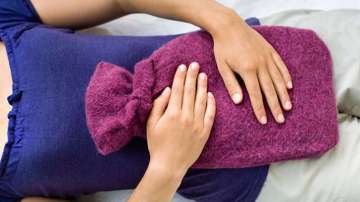Menstrual Hygiene Day is marked on May 28 every year. Menstruation is one of the most significant processes a woman’s body undergoes. The day is observed across globe to mark the importance of menstrual hygiene, break the stigma around periods, raise awareness and change the negative mindsets, which prevent girls and women from having a safe period. It was initiated by the German non-profit WASH United in 2013. WASH United is the overall global coordinator of Menstrual Hygiene Day and acts as its international secretariat.
In order to undo the stigma and negative connotations around a period, Menstrual Hygiene Day brings about an acceptance, thus encouraging young girls and women to embrace their period hygienically.
Talking about the same, Dr. Aparajita Gogoi, WRAI - National Coordinator & Executive Director, Centre for Catalyzing Change said "We need a commonly agreed understanding among families, communities, policy implementers and educators that menstrual hygiene is intrinsically linked to adolescent girls' health and overall well-being. Optimal menstrual practices have a cascade effect on development indicators such as access to regular schooling, which in turn is a building block for a life that emcompasses the full gamut of entitlements."
"India has made huge strides in school enrollments, for instance, but at puberty, education and health indicators for girls begin to dip and girls face increasing restrictions to their mobility and overall sense of agency. According to the 4th round of the Ministry of Health and Welfare’s National Family Health Survey (NFHS-4), conducted between 2015-16, only 36% women in India use sanitary pads during menstruation," added Dr Gogoi.
Speaking about the major barriers to access to menstrual hygiene, Dr Gogoi further said "As development practitioners and caregivers working during and after the pandemic, we need to be aware of the two major barriers to access to menstrual hygiene: many girls in India say they have no idea about menses before their first period, showing a massive need for awareness generation. The other huge need is for greater availability of sanitary products: a majority of women in India have reported that their families cannot afford to buy sanitary pads. On Menstrual Hygiene Day, there is a need to consolidate efforts around these two most urgent needs, among others."
